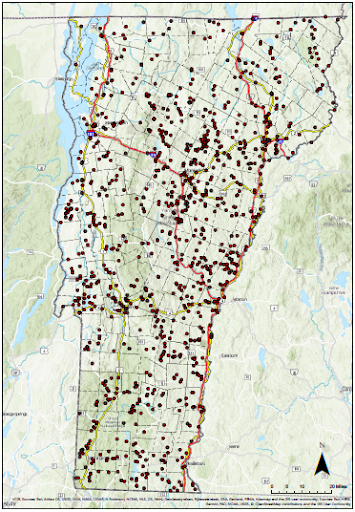Dam Safety Statute
State Statute 10 V.S.A Chapter 43: Dams governs the regulation of dams at the State level. Therefore, Chapter 43 applies to dams regulated by both the Dam Safety Program and the Public Utility Commission.
Dams Regulated by DSP
- Artificial barriers, including appurtenant works, capable of impounding water, other liquids, or accumulated sediments. There are no volumetric or height thresholds.
- Non-power dams (dams that do not relate to the generation of electricity energy for public use)
- Non-federal dams (dams that are not owned by the US nor subject to Federal Energy Regulatory Commission license or exemption)
Dams not Regulated by DSP
- Non-federal power dams – regulated by the Public Utility Commission (PUC)
- Federal power dams – regulated by Federal Energy Regulatory Commission (FERC)
- Federal dams – owned and regulated by U.S. Army Corps of Engineers (USACE) or other Federal entity.
Act 161 §1110 Rulemaking
Following the passage of Act 161 - An Act Relating to the Regulation of Dams in 2018, the portion of Chapter 43 that applies to DSP regulated dams, that is, non-power, non-federal dams was amended. The amendments included the addition of a purpose statement, definition of a “dam”, requirements for developing inspection schedules, hazard classifications, dam inventorying, and dam recording in the land records. In addition, the statute authorizes the Dam Safety Program to develop “Administrative” and “Standard” Dam Safety Rules.
Phase I - Administrative Dam Safety Rule
The Administrative Dam Safety Rule is in effect as of August 1, 2020. The Dam Safety Program is working to implement the associated requirements.
Please contact the Dam Safety Program by email at ANR.DamSafety@vermont.gov with any questions, concerns, or comments.
Phase II - Technical Standard Dam Safety Rule (In Progress)
The development of the Technical Standards is underway with adoption targeted for 2026. The program is currently drafting these rules and working with an interest group. For status updates related to this process, visit the dedicated page via the button below.
